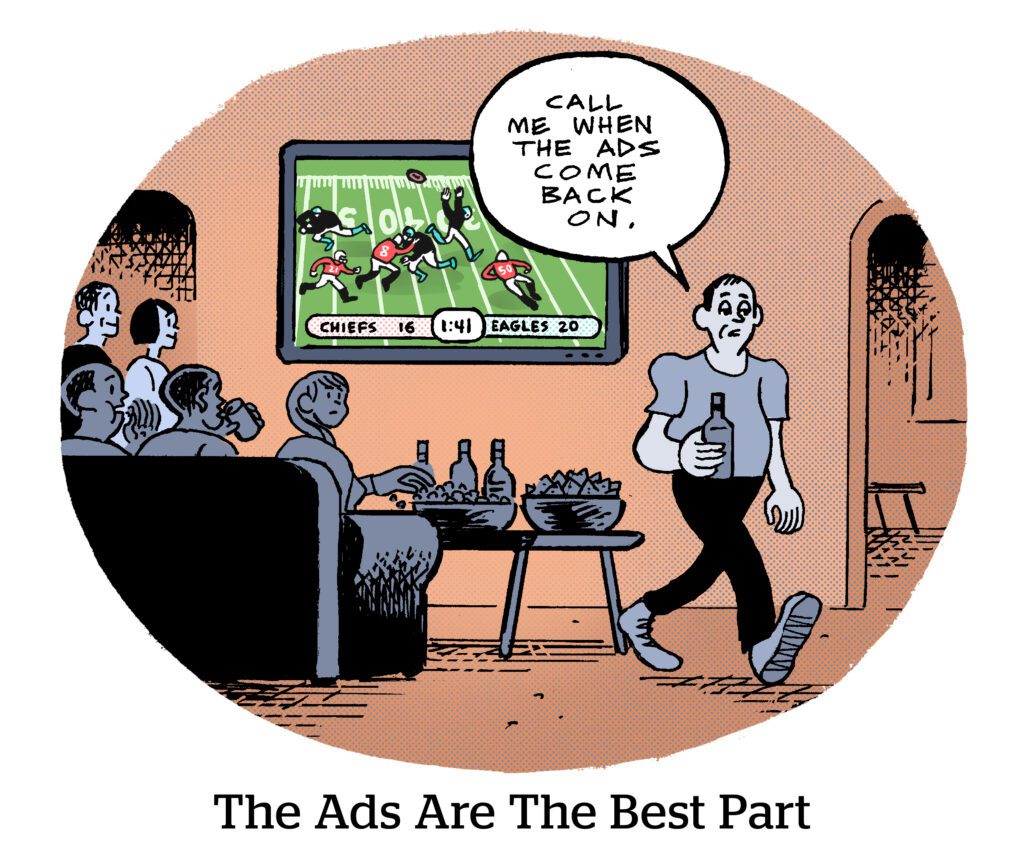Here’s today’s AdExchanger.com news round-up… Want it by email? Sign up here.
The AI A/B
Google Ads industry liaison Ginny Marvin was called out during a recent Q&A session hosted on an SEO-focused Discord server.
SEO folks had spotted instances where Google clearly A/B tested different ad copy options without a brand’s awareness or approval, Search Engine Land reports.
Marvin called it a “small test,” but shared little detail beyond confirming that Google AI was testing copy at its own discretion.
Thing is, when Google calls something a “small test,” it could be massive to anyone who doesn’t see the world through Google-tinted glasses. (No, not that Google Glass.)
For instance, consider the recent controversial Adalytics report, which estimates that 5% of Search Partner Network demand goes to worse-than-worthless inventory. The Search Partner Network generates around $10.5 billion in ad spend per year, so 5% is just $600 million. That’s a fraction of a margin from Google’s perspective – but it would be a bonanza for most other businesses.
The A/B tests are part of a broader machine-learning-led trend, with the biggest ad platforms taking great liberties with ad budgets and brand identities. As evidence here, they often do so without even letting advertisers know.
Did Netflix Win?
The streaming wars have churned out winners and losers (pun intended) – and Netflix is one of the former, Variety reports.
Netflix has been on a steady growth trajectory this year since reporting subscriber losses in 2022. And the streamer’s revenue forecasts are far more optimistic than its competitors (namely Disney, NBCUniversal, Paramount and Warner Bros. Discovery), according to recent data from Morgan Stanley.
Netflix’s stable balance sheet is thanks to a combination of releasing an ad-supported tier and shifting subscribers to that option, such as implementing enforcement against password sharing. The streamer boasts 15 million global advertising subs as of November.
People who sign up to see ads are worth more per year than those on Netflix’s ad-free tier.
But some of Netflix’s competitors with their own ad-supported streaming services haven’t been as successful – and some are now even licensing content to Netflix. Disney, for instance, which has its work cut out combining Hulu and Disney+ into a single app, plans to give 14 titles to Netflix.
Take-Three
Take-Two Interactive, the console video game maker behind the Grand Theft Auto franchise, bet big on mobile gaming – but didn’t nail the timing. The company acquired Zynga for $12 billion in early 2022, just as mobile gaming slid off a cliff.
One problem is mysterious ad revenue disappearance – which isn’t a mystery at all, actually. Mobile gaming ad revenue suffered greatly as a result of Apple’s privacy policies, Bloomberg reports. But at least developers can still cross-promote their own games to their own users.
For instance, CEO Strauss Zelnick tells investors Take-Two should still realize $100 million in cost savings following the Zynga merger, plus potentially $500 million more by promoting Zynga titles via other Take-Two games.
Mobile game ads are most effective at generating downloads for other mobile games.
But, fact is, without a content fortress like Microsoft or Amazon – or even Take-Two – game developers must rely on advertising with their rivals, which Apple’s changes are making it harder to do.
But Wait, There’s More!
Why NBCU’s Peacock is giving fans a taste of the NFL without ads. [WSJ]
DTC and digital-native brands find a bright spot in linear TV. [Adweek]
Good news for holiday shoppers and ad platforms: Retailers are improving their delivery times. [AP]











